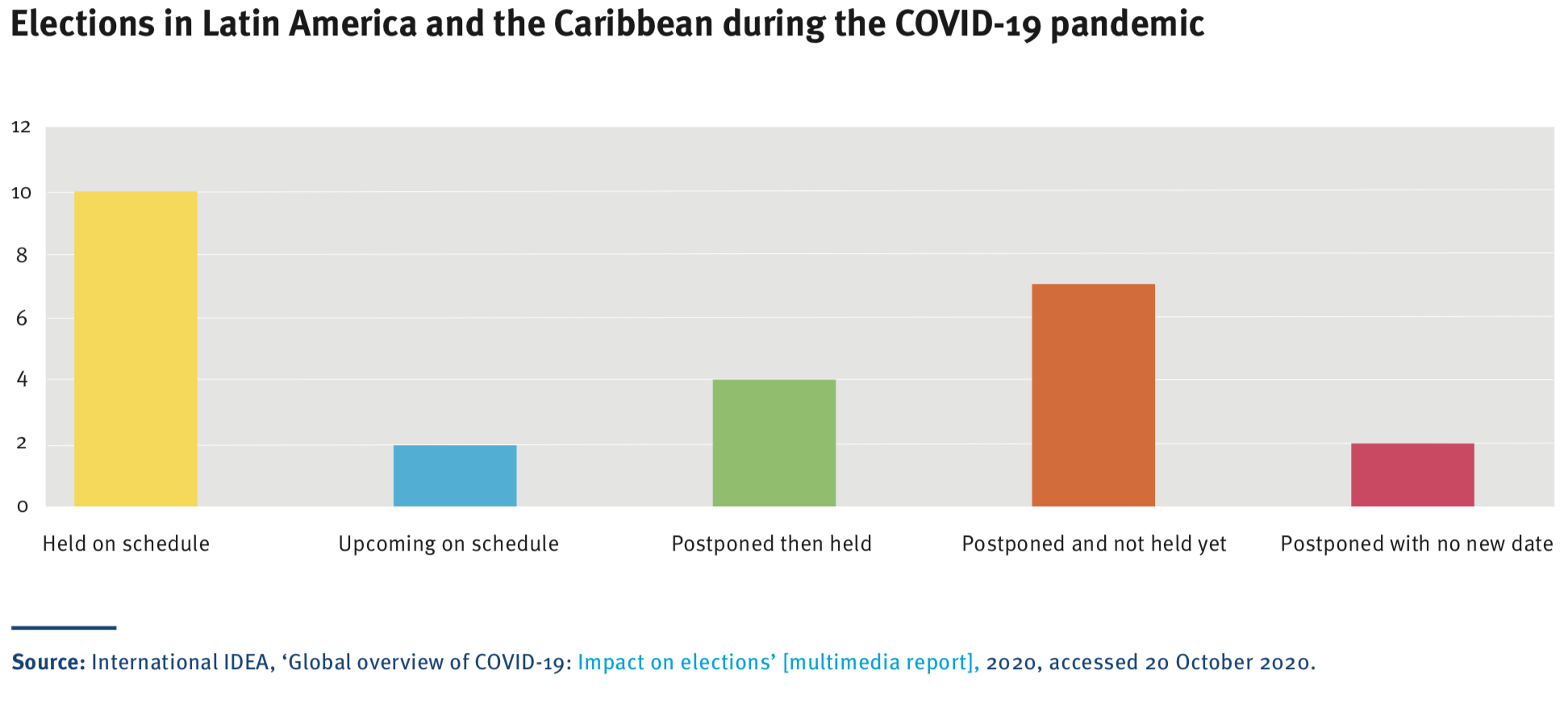The Covid-19 pandemic forced many institutions that organize elections to adapt. According to data from International IDEA, only 48 elections were held as initially planned in 2020; at least 67 countries and territories postponed national and subnational elections because of the pandemic.
Electoral processes involve multiple stages or phases, each of which requires planning and preparation. Budget planning and the execution of administrative and contractual procedures in Argentina begin at least one year before the election. In Argentina, 2021 marks the beginning of a new electoral cycle, in which national legislative elections, provincial legislative elections in 11 districts, and the election of two governors are scheduled.
Therefore, it is essential to conduct a forecasting exercise to analyse which aspects of Argentina’s electoral administration need to be adapted to the pandemic and post-pandemic context. The ‘Elections in Times of the Pandemic in Argentina’ project is jointly organized by International IDEA and the Center for the Implementation of Public Policies for Equity and Growth. The project evaluates the impact of Covid-19 on the 2021 electoral process. It proposes adaptations to electoral administration to ensure voter safety from a public health perspective while guaranteeing the full exercise of political rights.
The collaboration produced a public policy document that systematically reviews the international experience of elections held during the pandemic as well as the good practices identified by international organizations regarding electoral administration.
The Policy Paper (in Spanish) is available here.

